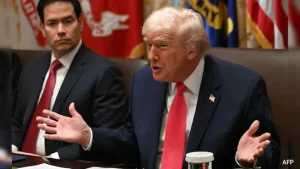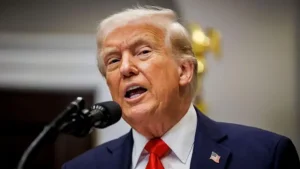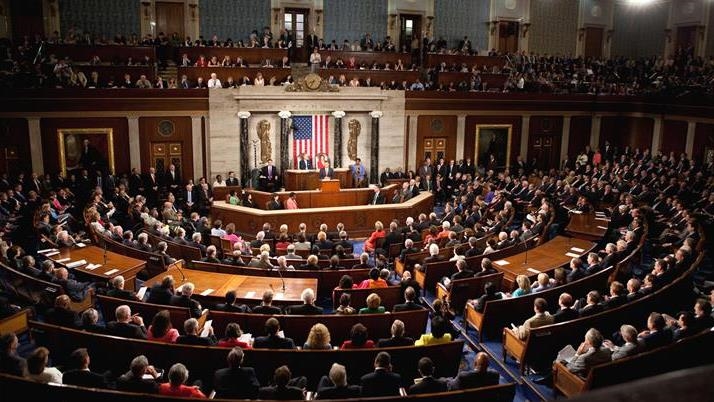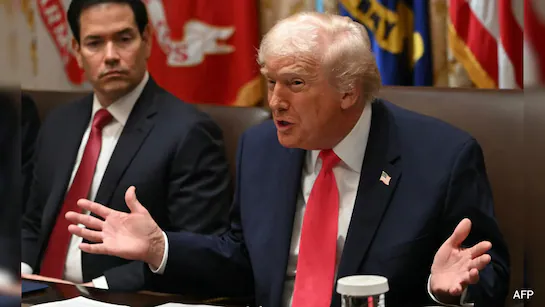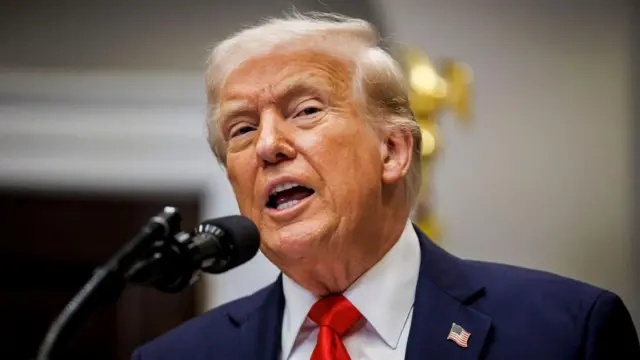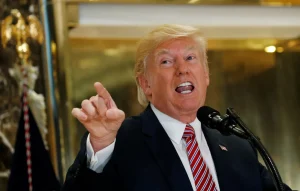In a chamber long known for its rigid party discipline and predictable outcomes, the United States Senate delivered an unusually dramatic moment when lawmakers voted 50–46 on a measure that immediately captured national attention. The outcome itself was not unprecedented, but what stood out was the way it happened — with four Republicans breaking ranks to join all Democrats in a vote that laid bare the internal divisions of Washington’s political machinery.
This narrow result, though unlikely to produce any direct legislative change, has become emblematic of a deeper power struggle unfolding in the nation’s capital. It underscored the continuing tension between the executive and legislative branches, the growing unease among lawmakers about unilateral decision-making, and the fragile cohesion of a Congress navigating between principle, party loyalty, and public perception.
At face value, the 50–46 tally might seem like just another partisan skirmish. Yet behind it lies a broader story of institutional friction — one that reaches beyond any single issue or moment in time. The vote’s immediate impact may be limited, but its reverberations are political, constitutional, and symbolic, signaling how lawmakers are increasingly willing to challenge authority even when the odds of success are slim.
A Divided Chamber and Four Unlikely Defections
The most striking aspect of the vote was the decision by four Republican senators — Mitch McConnell, Susan Collins, Lisa Murkowski, and Rand Paul — to side with Democrats. In today’s polarized environment, such a crossover represents a significant act of defiance. Each of the four comes from a different political background and constituency, yet all shared a concern about the growing scope of executive authority and the potential consequences of allowing it to expand unchecked.
Their votes did not come without risk. Crossing the aisle on a measure so closely associated with the administration’s agenda is a politically fraught move, particularly for figures like McConnell, who has long been seen as a pillar of party discipline. But their decisions also reflected a shared conviction that certain principles — especially those concerning balance of power and legislative oversight — transcend the demands of party loyalty.
For Collins and Murkowski, both of whom have histories of occasional independence, the vote aligned with their reputations as moderates willing to defy leadership under particular circumstances. For Paul, whose libertarian streak often places him at odds with both major parties, the decision was consistent with his long-standing skepticism of concentrated executive authority. And for McConnell, the move was as surprising as it was symbolic, reflecting perhaps a strategic recognition of the Senate’s institutional prerogatives and his personal understanding of the chamber’s historical role as a counterweight to the presidency.
The Political Theater Behind the Numbers
The vote’s outcome carries immense symbolic weight precisely because its legislative path forward is uncertain. The measure is unlikely to progress in the House, where leadership has shown little interest in advancing it. Even if it somehow reached the president’s desk, a veto would almost certainly follow, ensuring that the Senate’s decision remains more a message than a mandate.
Yet to reduce the event to symbolism alone would be to overlook its broader implications. Symbolic actions in Washington often serve as political signals — markers that define where individual lawmakers stand, where power centers are shifting, and how national debates are evolving. In this case, the 50–46 result became a statement not only about the issue at hand but about the willingness of senators to publicly challenge the boundaries of executive power.
Observers inside the Capitol noted the quiet tension on the floor as the vote unfolded. The moment carried a sense of gravity uncommon in the routine churn of legislative business. When the final tally was announced, the chamber’s subdued reaction hinted at the deeper implications — a recognition that the balance of power between branches of government, always fragile, had once again become a matter of open contention.
A Vote About More Than Policy
Though the immediate focus was on the specifics of the measure, the underlying debate was much larger. For many senators, the vote was not simply about a policy disagreement but about reaffirming the constitutional boundaries that define the republic’s governance. The question at hand was whether the executive branch should continue to wield expansive authority without adequate congressional oversight — a dilemma that has transcended administrations and political parties for decades.
Lawmakers who supported the measure framed their votes as a defense of the Constitution’s separation of powers. They argued that the legislative branch must not allow precedent to erode its ability to act as a check on the presidency. Those who opposed the measure countered that the executive needs flexibility to respond quickly to national and global challenges. But for many observers, the underlying issue was less about the specific policy and more about the process itself — whether major decisions with significant economic and political consequences should bypass congressional deliberation altogether.
This debate struck a chord with voters and analysts alike. It revived questions about how emergency powers, executive orders, and administrative decisions are being used — and, in some cases, stretched — to implement far-reaching actions without direct legislative input.
The Role of Principle in an Age of Partisanship
One of the most compelling aspects of the 50–46 vote is how it revealed the rare presence of principle-driven decision-making in an era dominated by partisan calculation. For senators like Collins and Murkowski, the decision fit into a broader pattern of prioritizing procedural integrity and institutional restraint. For Paul, it reaffirmed a long-standing philosophy that values individual liberty and skepticism of centralized power. For McConnell, it may have reflected an understanding that even within party leadership, the long-term health of the Senate depends on its ability to assert itself as a coequal branch of government.
These choices carried immediate political consequences. By defying party leadership, the four senators invited criticism from allies and risked alienating portions of their base. Yet they also reinforced the notion that independence remains possible — and, in rare moments, necessary — in modern American politics.
The vote also forced both parties to confront uncomfortable realities. For Republicans, it exposed the limits of unity and the growing tension between traditional conservatism and the more populist direction the party has taken. For Democrats, it offered an opportunity to claim moral high ground on issues of governance, even as they wrestle with their own internal divisions over executive authority when in power.
The Broader Consequences for Congress
The Senate’s decision will not, in itself, alter the balance of policy. But it may influence how future lawmakers approach questions of power and accountability. Votes like this, though technically symbolic, help define institutional identity. They remind the public — and perhaps the senators themselves — that Congress retains both the authority and the responsibility to challenge the executive when necessary.
If anything, the 50–46 vote may embolden more lawmakers to break from party orthodoxy in future debates. It demonstrated that a small coalition, if united around principle rather than politics, can shift national attention and force broader conversations about governance.
It also reignited discussions about whether Congress should take stronger steps to reclaim its constitutional powers. For decades, both parties have ceded increasing authority to the executive branch, allowing presidents to act unilaterally on matters once firmly under legislative control. This vote, modest though it was, could mark the beginning of a quiet reassertion of congressional relevance.
A Reflection of the Times
The 50–46 tally arrived at a moment when American politics seems perpetually locked in gridlock and polarization. Yet within that stalemate, there remains space for moments of conscience and conviction. The Senate, often criticized as a body of inertia, demonstrated that its members are still capable of asserting independence — however constrained the outcomes may be.
Political analysts were quick to frame the vote as a litmus test for leadership and accountability. Supporters saw it as a principled stand for checks and balances; detractors dismissed it as performative politics designed to make a statement without substance. Both views hold some truth. The vote’s immediate impact may be minimal, but its symbolic resonance extends far beyond the chamber’s walls.
Conclusion: A Statement That Outlasts Its Moment
The Senate’s 50–46 vote may not change policy, but it will almost certainly shape perception. It will be remembered not for what it achieved legislatively, but for what it represented institutionally: a rare assertion of congressional independence, a fleeting but powerful reminder that even in the most partisan of eras, the lines of authority and principle still matter.
In the long arc of governance, such moments define how power is distributed, how institutions evolve, and how leaders are remembered. The four Republican senators who joined their Democratic colleagues have, for better or worse, placed themselves on the side of history that values oversight and restraint over political convenience.
As the dust settles and the measure fades into procedural obscurity, what remains is the enduring image of a chamber momentarily united — not by ideology, but by a shared recognition that the balance of power must never be taken for granted. The Senate’s narrow 50–46 vote stands as a reminder that, even when outcomes seem predetermined, the act of standing up for institutional integrity carries meaning that extends far beyond the final count.

Emily Johnson is a critically acclaimed essayist and novelist known for her thought-provoking works centered on feminism, women’s rights, and modern relationships. Born and raised in Portland, Oregon, Emily grew up with a deep love of books, often spending her afternoons at her local library. She went on to study literature and gender studies at UCLA, where she became deeply involved in activism and began publishing essays in campus journals. Her debut essay collection, Voices Unbound, struck a chord with readers nationwide for its fearless exploration of gender dynamics, identity, and the challenges faced by women in contemporary society. Emily later transitioned into fiction, writing novels that balance compelling storytelling with social commentary. Her protagonists are often strong, multidimensional women navigating love, ambition, and the struggles of everyday life, making her a favorite among readers who crave authentic, relatable narratives. Critics praise her ability to merge personal intimacy with universal themes. Off the page, Emily is an advocate for women in publishing, leading workshops that encourage young female writers to embrace their voices. She lives in Seattle with her partner and two rescue cats, where she continues to write, teach, and inspire a new generation of storytellers.
